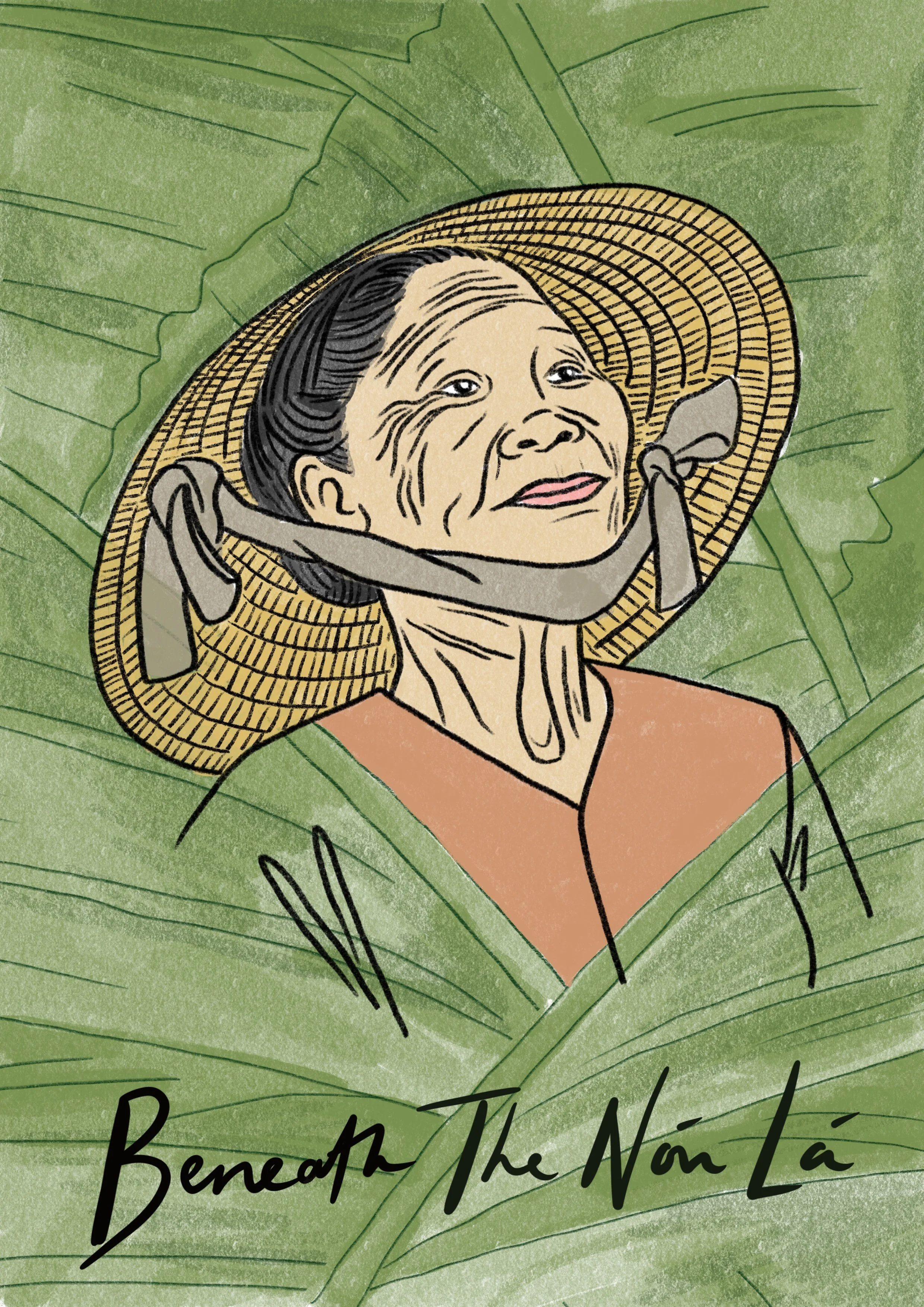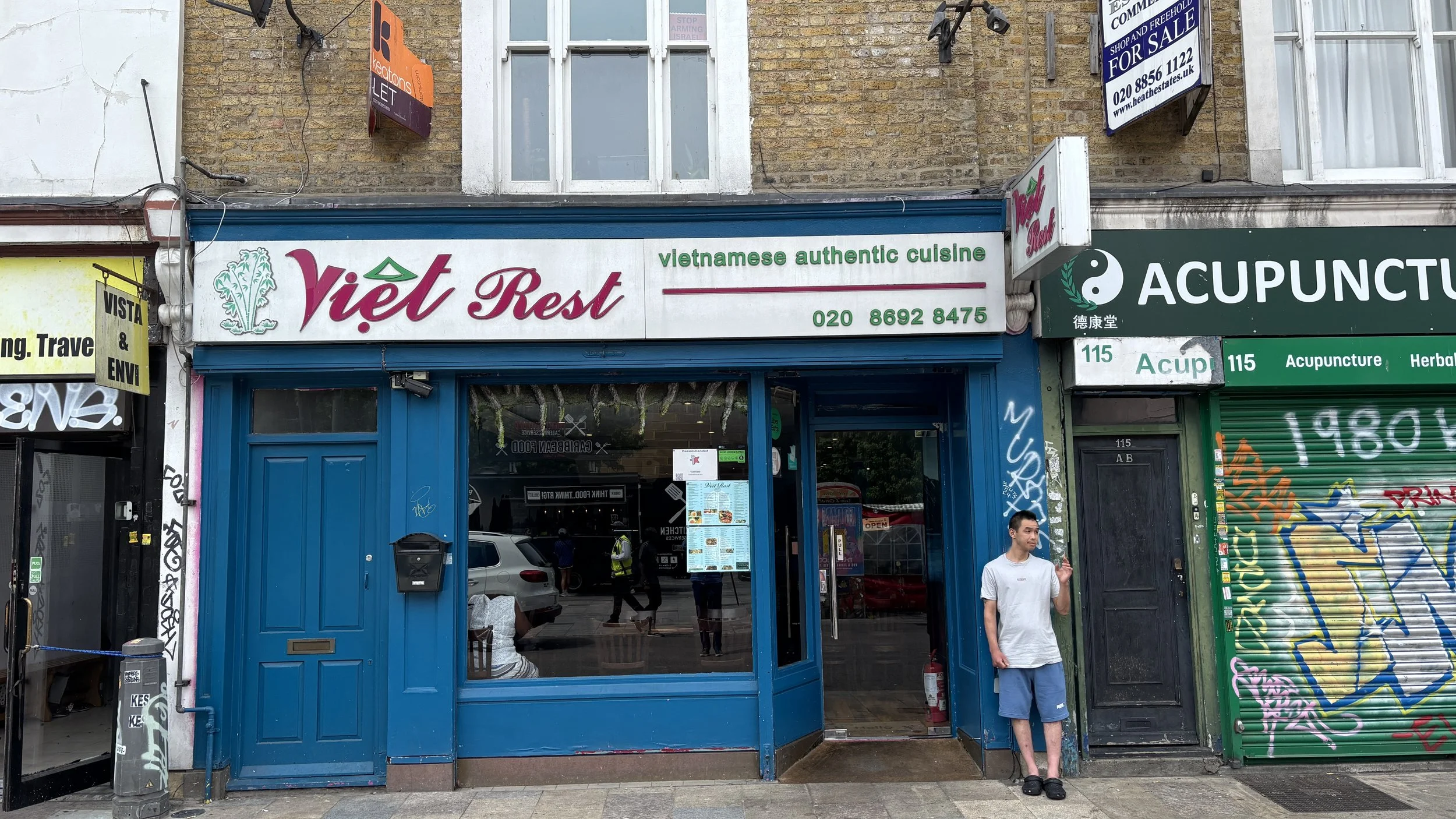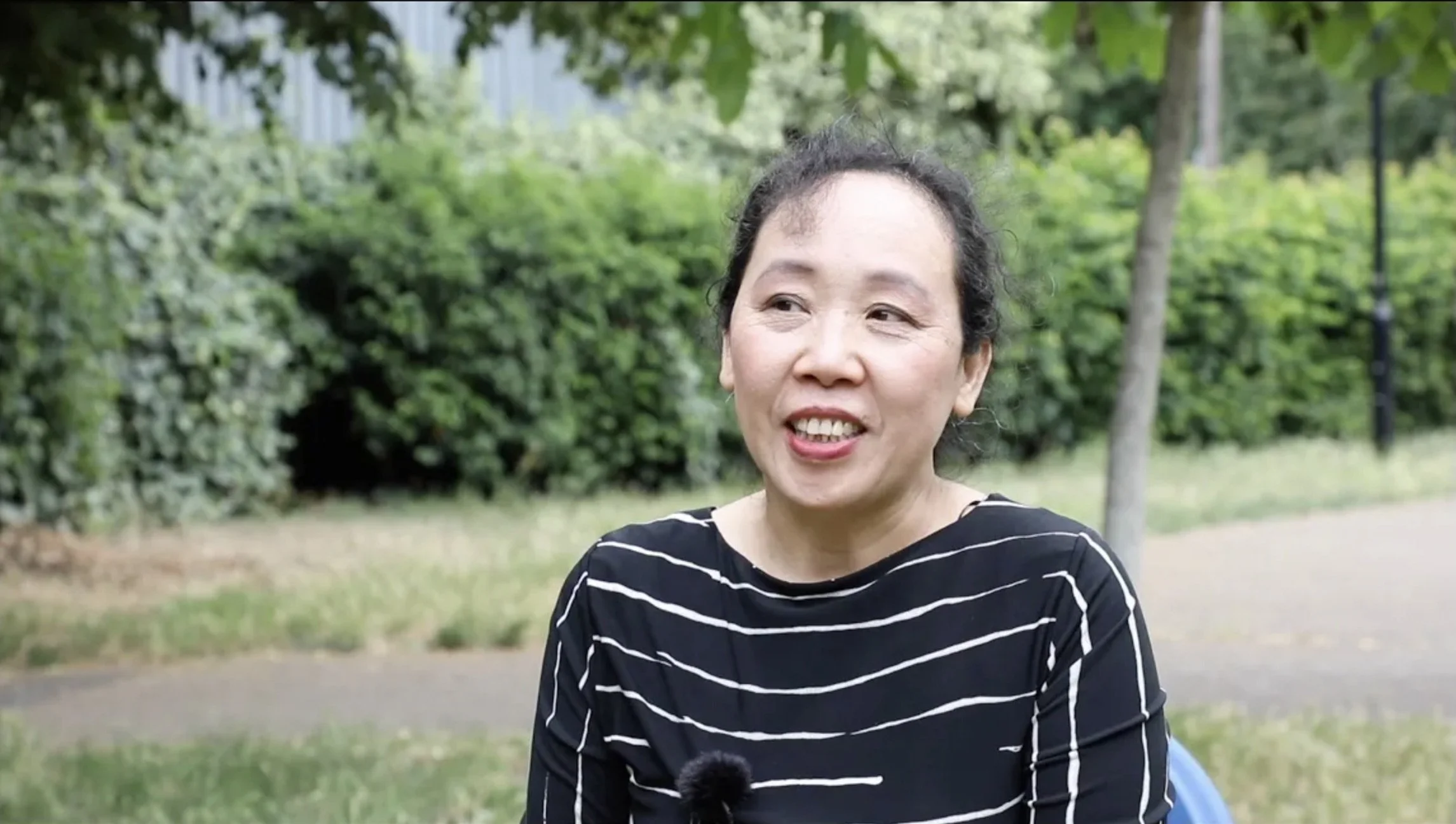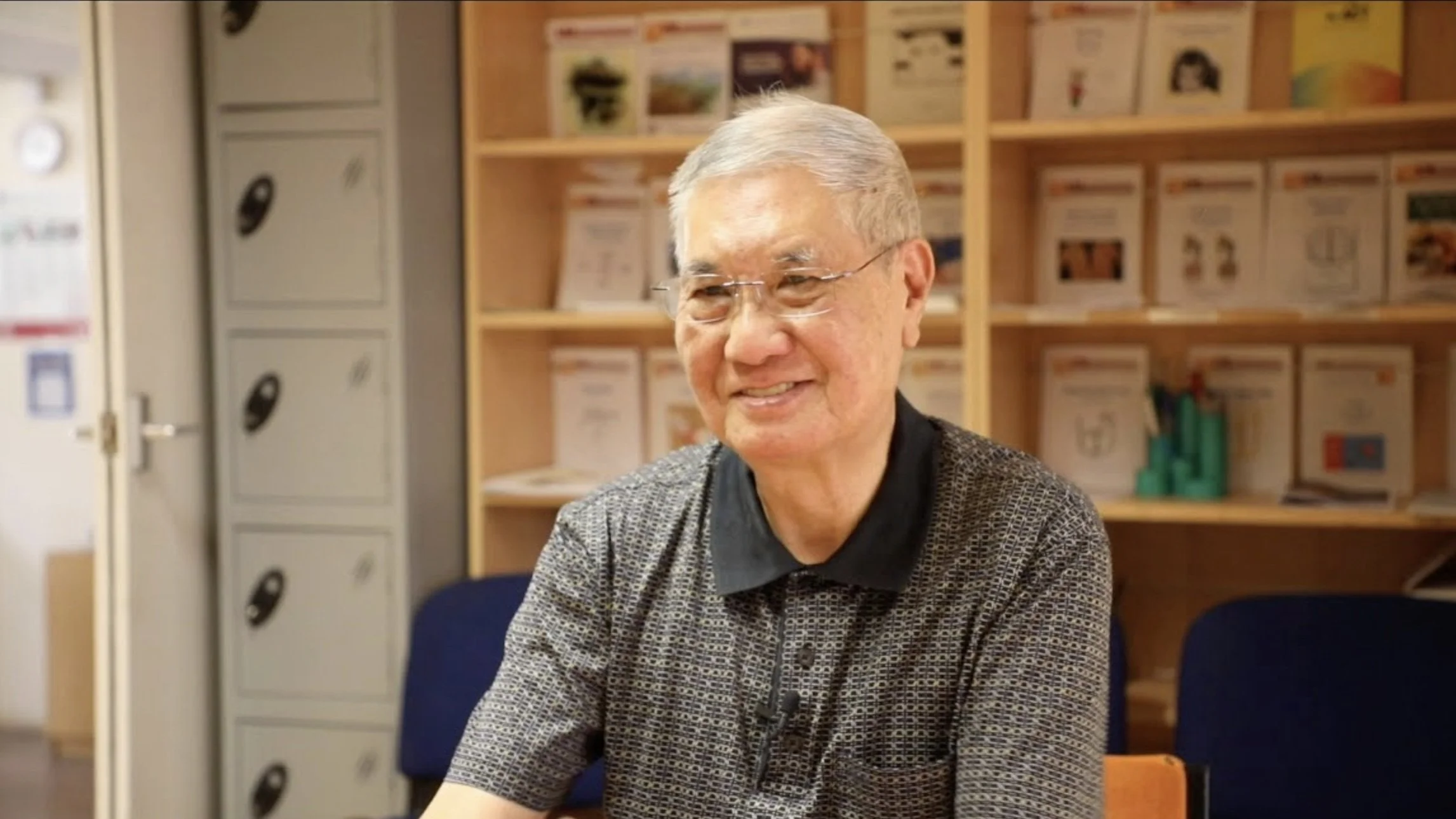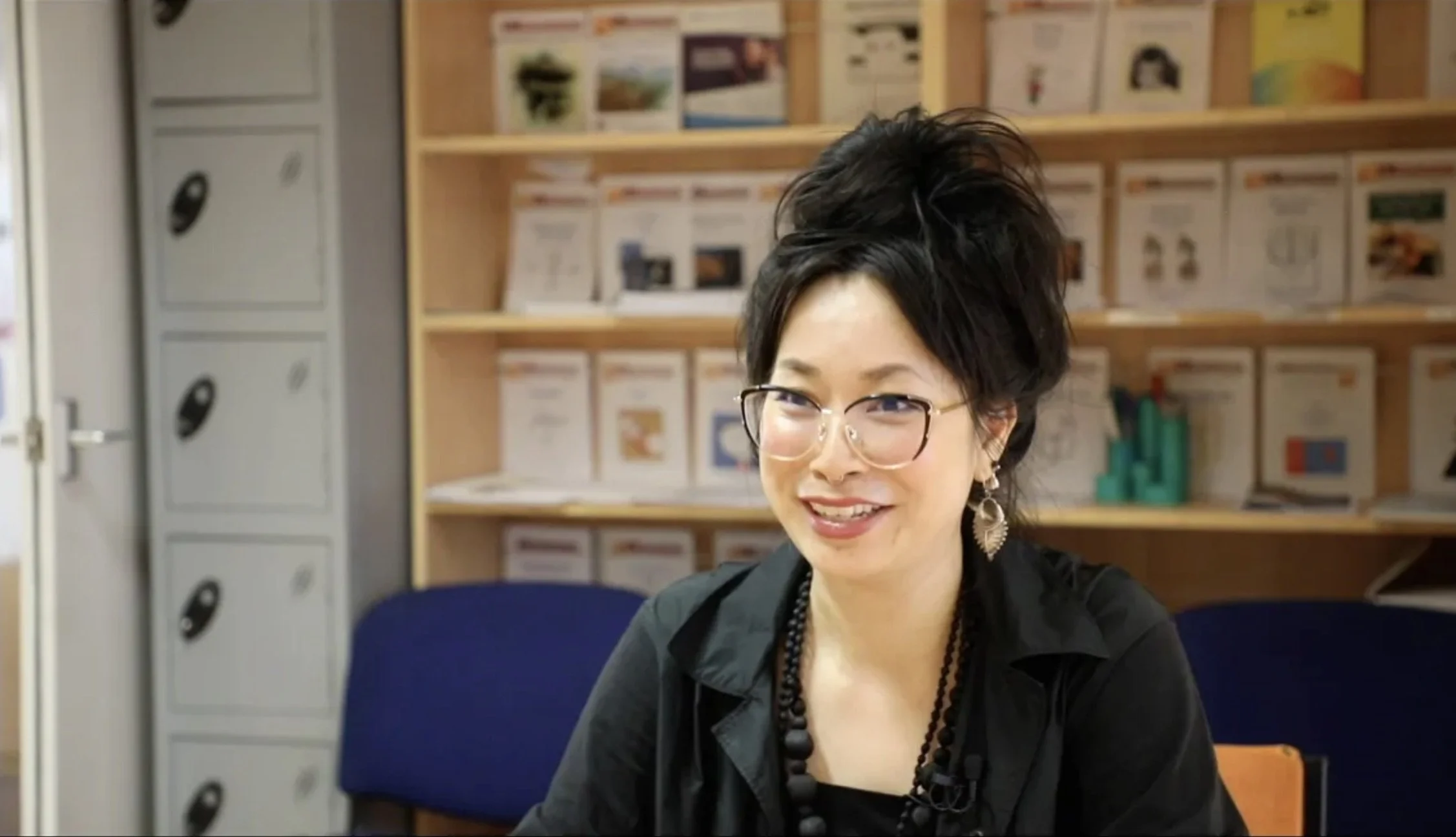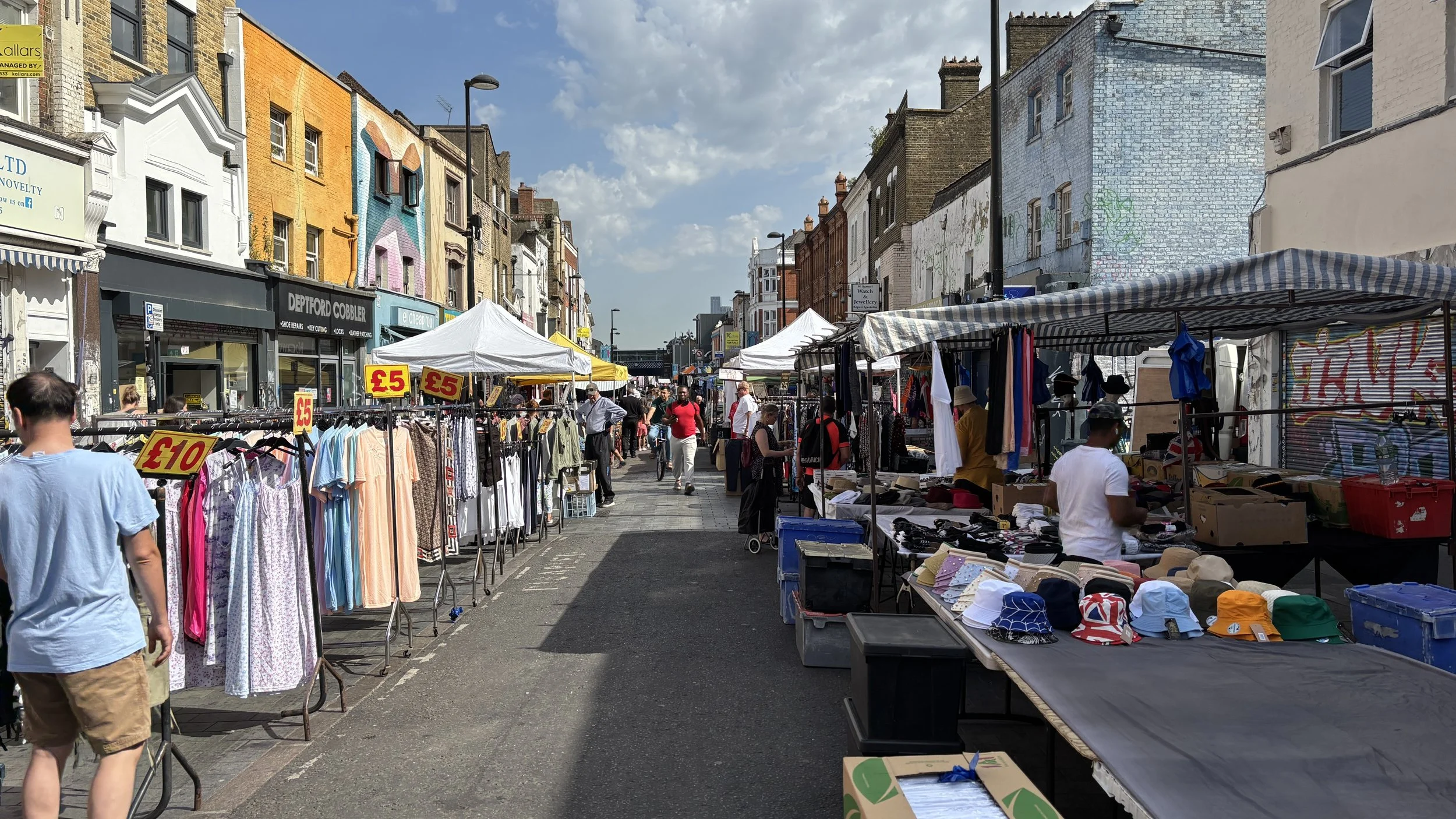Beneath the Nón Lá; the British Vietnamese
Nón Lá - the iconic Vietnamese conical hat
The Vietnamese community in the UK remains largely hidden and unseen. A visit by Rupert Bedford to its cultural heart in South East London reveals a vibrant and diverse community with a unique history and a rich contribution to British Society.
By Rupert Bedford
21st August 2025
The noodles seem determined to foil my every move, slipping and sliding off my chopsticks time and time again; my embarrassment tempered only by the sweet aroma of fresh herbs and spices – coriander, cardamom, cinnamon, star anise, ginger – rising up from my delicious Bánh phở soup.
Sitting opposite me is Quynh whose perfect English spares me the need to stumble through my basic Vietnamese, albeit that I can take a little satisfaction from being able to recognise the Vietnamese being spoken by couples and families on nearby tables.
The Viet Rest Vietnamese Restaurant in Deptford, South East London
It is a scene familiar from my trips to Hanoi and Ho Chi Minh City (also known as Saigon). But this is South East London and I am in the Viet Rest restaurant on Deptford High Street.
With newly acquired Vietnamese family through my son who now lives in Vietnam, I am curious to learn more about the British Vietnamese community in the UK; a community that remains largely hidden and unseen despite its first generation having arrived on British shores over 50 years ago. And I am here to meet and interview some of the leaders of that community, the cultural heart of which has, over time, migrated to this part of London.
Quynh Nguyen is founder and CEO of Vietnamese Family Partnership (VFP), a small grassroots charity serving the local Vietnamese community, with offices in Deptford and London Bridge in South East London. She was born and raised in Hanoi and, following graduation from Hanoi National University, taught Vietnamese and French at both primary and secondary level. In the early 1990’s she joined her husband in London and embarked on a new career in the NHS as a Public Health Manager.
Over the years the number of organisations serving the British Vietnamese community has dwindled to a mere handful due to lack of local authority funding and, in 2019, Quynh made the decision to dedicate herself full time to setting up and running a charity that would offer cultural, language and arts programmes as well as other services to her local Vietnamese community in South East London. From this the Vietnamese Family Partnership, otherwise known as Gia Đình Việt, was born.
I learn from Quynh that language barriers have been a significant issue for the British Vietnamese community. Beyond the obvious challenges faced by first generation arrivals in assimilating a new language, the diverse make up of the Vietnamese diaspora, including many of Vietnamese-Chinese heritage, has presented difficulties in terms of the Vietnamese community coming together as one single ‘identifiable’ voice. Moreover she points out that language barriers continue to exist even within different generations of the same family.
But a diverse diaspora and language barriers do not tell the full story as to why the British Vietnamese community remains relatively hidden and unseen to this day.
Jack Shieh reminds me that the British Government’s refugee resettlement policy in the 1980’s was one of ‘dispersal’. Worried about creating cultural ‘ghettos’ in any one place, Vietnamese refugees were dispersed into small groups all over the country. This had the effect of creating fragmented, isolated communities and exacerbated language difficulties and regional and historical tensions within the Vietnamese diaspora. Instead of bringing the community together in a way in which they could support each other at a very vulnerable time, it had the opposite effect, with many Vietnamese ending up unemployed and with mental health difficulties.
Jack was an exception. He was a refugee from Vietnam who resettled in the UK in 1980. Starting work as an interpreter he eventually became director of the influential NGO, Refugee Action, in charge of co-ordinating the resettlement and community development programmes for Vietnamese refugees in the late 1980’s, a public service for which he was later awarded an OBE.
Another common theme that emerges from my interviews is that of the inherently ‘humble’ character of the Vietnamese. As Jack explains, “…we vietnamese are very polite and always very quiet. We never ask for things or make a big noise or fuss or anything. So that has been a disadvantage and the Vietnamese have always been invisible in the UK.”
Moreover, as Tuyet Van Huynh points out, the early generation Vietnamese were focused simply on surviving and ‘getting on with it’. Very much like the nation of Vietnam itself, the main focus of the Vietnamese people was simply survival – a collective result of experiencing the trauma of war, difficult journeys of migration and disfunctional resettlement in a new country.
Tuyet is, however, positive for the future. She believes that there is a point at which a culture feels safe enough to break out of simply a ‘survival phase’ and find a space to create a develop their own stories and strengthen their sense of own community and cultural identity. 50 years on she believes that time has come for her community.
Tuyet is a producer, curator and film programmer of British Vietnamese-Chinese heritage. She works across film, theatre and immersive technologies. Her work is rooted in diasporic memory and cultural heritage, and has featured in the National Theatre and other leading arts and cultural institutions in the UK. She is the festival director of Star Nha Ease, the UK’s first dedicated Vietnamese film and arts programme, launched in 2024.
Tuyet is among the new wave of British Vietnamese moving beyond notions of mere survival, to proudly embracing and celebrating their unique culture and community.
And it is in this context that she and others have been working with Quynh and the Vietnamese Family Partnership on a pioneering Sculpture Project known as ‘This Space – As A Home’.
Directly opposite the Viet Rest Restaurant is Griffin Square, a public space immediately outside Deptford Library (better known as Deptford Lounge), a place where Vietnamese Family Partnership have located many of their events and activities. It is here, Quynh tells me, that they have obtained permission to install a sculpture dedicated to the British Vietnamese community, the first of its kind anywhere in the UK.
VFP have worked with the local Vietnamese community to ensure that the Sculpture incorporates the many different elements of what it is to be British Vietnamese.
Tuyet enthusiastically explains how the project idea has developed over a number of years, with the full and active engagement from the community
throughout - asking them what they wanted to represent them in a permanent way in a country that they’ve resided in for so long. She emphasises that it’s not just an artistic project where the Vietnamese diaspora second generation are reflected. “It’s a project that’s rooted in understanding all the generations and bringing it all together in one place,” she tells me, “and its time that we have something physical and permanent in a public space where this community of people have existed for so long in a city, a country, that they can feel proud of”.
Tuyet goes on to explain that they’ve developed a digital archive that will be very much connected to the sculpture and allow it to be continually updated with a multitude of stories from past, current and future generations of the Vietnamese diaspora.
Market in Deptford, South East London
As I wander back through Deptford market back to the train station, I reflect on my experience of visiting this area of South East London and meeting some of the inspirational leaders from what is clearly a vibrant Vietnamese community. I am left with a clear sense that this community is one that finally feels confident and safe enough to begin asserting itself with a collective, unified voice.
I would encourage everyone to listen.
_________________
For more information on the Vietnamese Sculpture Project ‘This Space - As A Home’ and the work of Vietnamese Family Partnership (VFP) please visit their website at vietfp.org
Rupert is a UK based solicitor, journalist and multimedia producer who has Vietnamese extended family through his son who lives in North Central Vietnam. He has previously worked with Blue Dragon Children’s Foundation in Vietnam and his work includes the multimedia stories More than just a game, Dragon Law and Seven Days in June.
